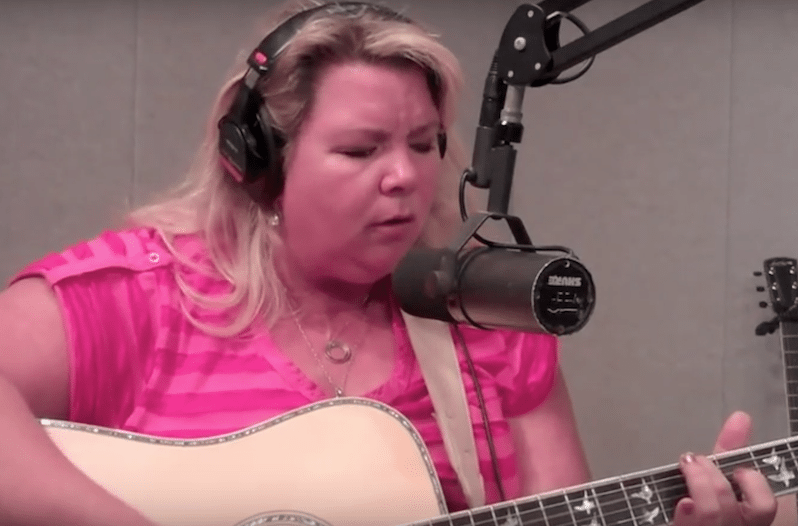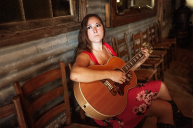Leslie Satcher still remembers the day her cousin brought Willie Nelson's new album Red Headed Stranger to her northeast Texas home. That's the day she fell in love with lyrics and learned how a seemingly simple song can change a life.
Videos by Wide Open Country
"They played it for us and everybody else went outside but I stayed in and listened to that record about eight times in a row," Satcher tells Wide Open Country. "I really think that planted a lot of seeds in me."
Satcher started writing her own songs in her teens in hopes of capturing the feeling Willie's lyrics had sparked in her. And to heal a broken heart.
"Of course they were all terrible, terrible love songs," Satcher says, laughing. "That's what gets you into songwriting: heartbreak - in country music, anyway."
Satcher moved to Nashville in 1989 and at the behest of her friend and mentor Naomi Judd, she kept writing and singing.
"I came to Nashville just to be a singer," Satcher says. "I said 'Well, will they let you do both?'''
Not only did Satcher become both a singer and professional songwriter, but her hero, the Red Headed Stranger himself, recorded her song "You Remain" for his 2002 album The Great Divide. Along with Willie, a string of Nashville superstars have cut Satcher's songs: George Strait, Martina McBride, Pam Tillis, Patty Loveless, Vince Gill just to name a few.
God-Fearin' Women
Shortly after moving to Nashville, Satcher began performing the Bluebird Cafe, Mecca for songwriters and song-lovers.
Satcher's performances at the Bluebird helped launch her into the songwriting career she'd dreamed of. She met fellow songwriters and artists hungry for great lyrics.
In 1998, Satcher had her first radio hit with Pam Tillis' recording of her song "I Said a Prayer." The song rose to No. 2 on the Billboard country charts. Satcher says she'll never forget the first time she heard her song on the radio.
"We were in the car. That's where most songwriters hear their songs for the first time--on the car radio. And you have to pull over and cry. Everybody does it. You're just so overwhelmed over the journey that a song can take," Satcher says. "It happens to every songwriter - grown men, everybody."
A few years later, Satcher scored a Top 10 hit with Martina McBride's "When God-Fearin' Women Get the Blues," a rowdy ode to housewives gone wild.
Amid writing Billboard hits, Satcher recorded her debut album 1999's Love Letters.
The Life of a Song
In the world of music publishing, a song may take one week or one decade to make it to an artist who wants to cut it.
"When I had 'God Fearing Women' recorded by Martina McBride, I wrote that song on a Thursday night, I demoed it on Friday morning in the studio and on Tuesday she cut it. It was very fast," Satcher says.
And sometimes songwriters are tasked with writing for a specific artist. In Satcher's case, the artist was one of the biggest and most beloved in country music history. Nashville producer Tony Brown approached Satcher about writing a song for George Strait that would sum up his career on the cusp of his retirement. Satcher and co-writer Monty Homes wrote the song in 40 minutes.
"The record label had it but we weren't sure it had actually gotten to George. A friend of mine with another company who was just a fan of songs, she was out with George on his boat. She asked him 'Have you heard this song?' She played it for him and that's when we knew for sure he'd heard it. He said 'That's my song.'"
In other cases, incredible songs may be put "on hold" for years while the songwriter waits for an artist to cut the track.
Satcher's song "Love Me," a rapturous love song and surefire hit in the hands of the right artist, has been put on hold several times but never recorded.
Changing with the Tides
Satcher says when songwriting is your livelihood, the need to mesh artistic integrity with songs that sell is prevalent.
"That pressure is there every single day for every writer here. Particularly because the songwriting community is getting and smaller and smaller. There are fewer of us because of the download situation and because of us being in such a spiral. They don't know how to handle the whole digital world yet," Satcher says. "The way that songwriters got paid was by album sales. Well, if people aren't buying albums...The pressure to write something commercial that will get on the radio - what's left of the radio - is high."
No matter how the industry changes, Satcher is proof that good songs will win in the end.
Satcher is currently working on her fourth record, a live album recorded in Muscle Shoals, Ala., which features guest vocals from Vince Gill, Trisha Yearwood and others. In November, she'll join Aaron Watson for a show at the Ryman Auditorium.
For more information and upcoming Leslie Satcher shows, visit her Facebook page.




